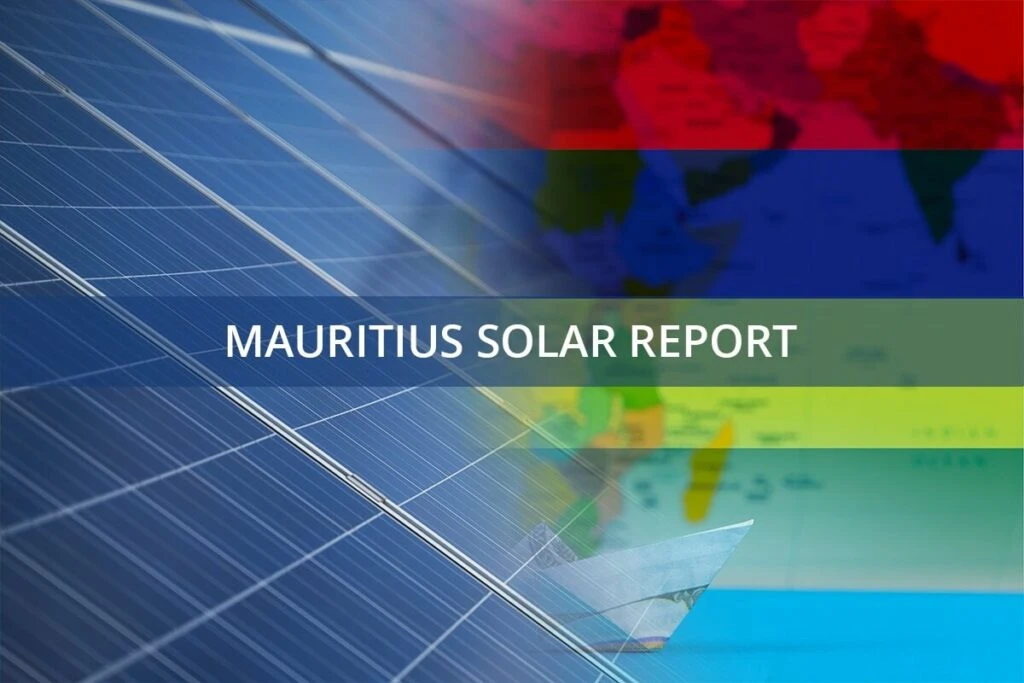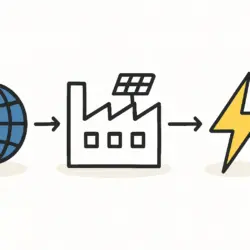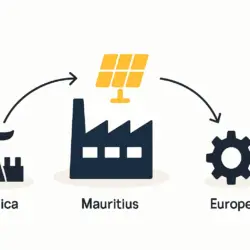Mauritius Home Solar Project: Powering Homes with Mauritius solar energy, Slashing Bills and Emissions
Mauritius’ Home Solar Project has successfully installed solar PV systems on 2,000 rooftops, generating a total capacity of 10 MW of green energy. This landmark initiative is a core part of the country’s strategy to reduce its dependence on fossil fuels, cut carbon emissions by 15,000 tonnes annually, and significantly lower electricity costs for thousands of households.
Solar PV Systems Installed on 2,000 Households with Mauritius solar energy
In a significant stride towards a sustainable future, Mauritius has successfully equipped 2,000 households with rooftop solar photovoltaic (PV) systems. This initial phase of the Home Solar Project, officially launched by the Minister of Energy and Public Utilities, Georges Pierre Lesjongard, is already making a tangible impact on the nation’s energy landscape.
The project aims to empower households by cutting their electricity costs while simultaneously reducing the country’s reliance on imported fossil fuels. The solar PV systems, which rely on a sophisticated manufacturing process to convert sunlight into electricity, are a cornerstone of the Mauritius Renewable Energy Agency’s (MARENA) strategy to champion clean energy. The initiative is being implemented through a close collaboration between key stakeholders, including the Central Electricity Board (CEB) and the Ministry of Energy and Public Utilities.
Benefits of the Home Solar Project for Mauritius solar energy
The Home Solar Project delivers a powerful combination of economic, environmental, and social benefits. It not only contributes to the country’s overall energy security but also provides direct financial relief to participating families. By generating clean energy, the project is helping Mauritius reduce its dependence on imported fossil fuels and is projected to cut carbon emissions by 15,000 tonnes per year.
The impact on household budgets has been immediate and profound. Many participants have reported that their electricity bills have been reduced by more than 50%, contributing to a collective annual saving of approximately USD 400,000. Denis Trevedy, a resident from Dagotière, highlighted the direct benefits, noting his electricity costs have been more than halved since the system was installed.
In addition to energy independence, the project offers a clear financial incentive. The Central Electricity Board (CEB) pays Rs 4.20 per kWh for the surplus electricity generated by the solar PV systems and fed back into the grid. This helps households further offset their electricity bills, making the transition to clean energy both accessible and profitable.
Government’s Vision for Renewable Energy and Mauritius solar energy
The Home Solar Project is a key pillar in the government’s ambitious vision to transform Mauritius’ energy mix. According to Minister Lesjongard, the government is driving towards a target of 35% renewable energy by 2025 and an impressive 60% by 2030. The ultimate goal of installing 10,000 residential PV systems under the Home Solar Project is a critical step toward achieving this target.
This initiative is part of a much broader national strategy. The government’s commitment is further demonstrated by the policies outlined in the Mauritius Budget 2025: Powering a Green Energy Future, which allocates significant funding for green projects. This includes other large-scale developments, such as the plan for Mauritius to Build 10MW Solar Plant with Hydrogen in Moka.
To reach the 10,000-system goal, the government has planned subsequent phases. Phase II will see the installation of 4,000 additional PV systems, with Phase III adding the final 4,000 systems to complete the project.
Partnerships and Support for the Home Solar Project in Mauritius solar energy
The remarkable success of the Home Solar Project is a testament to strong collaboration between national and international partners. The CEB is instrumental in implementing the project and provides half of the required funding. MARENA, meanwhile, is responsible for the critical oversight of the installation and ongoing maintenance of the solar PV systems.
Crucial financial support has come from international partners committed to a sustainable future. The Abu Dhabi Fund for Development (ADFD) provided a concessional loan of USD 10 million, covering half of the total project cost. This kind of international partnership is vital for accelerating the energy transition, a trend reflected in the latest Global Solar Report. Additionally, the Agence Française de Développement (AFD) has provided a broader grant of Rs 1.4 billion to support various renewable energy developments in Mauritius, including the Home Solar Project.
This initiative is a significant step towards achieving Mauritius’ renewable energy goals. By empowering households, reducing national energy costs, and increasing the share of renewables, the project is building a more sustainable and secure energy future for the nation. This places Mauritius at the forefront of renewable energy adoption among Small Island Developing States (SIDS), an effort mirrored by regional neighbors as Seychelles Launches Africa’s Largest Floating Solar Farm.
If you are interested in learning more about the fundamentals of solar energy and its applications, you can explore our free e-course on solar technology.



